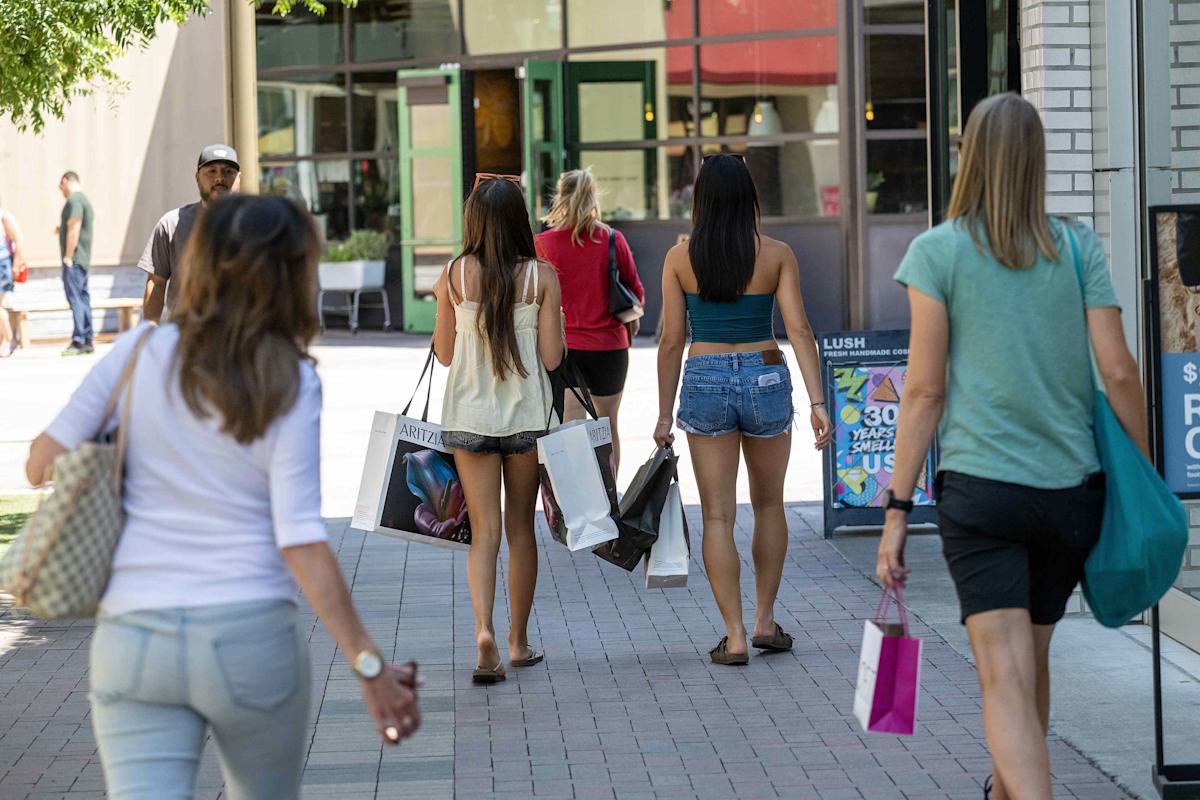David Paul Morris / Bloomberg via Getty Images
National Retail Federation CEO Matthew Shay said consumers looking to buy goods before higher tariffs took effect helped boost spending in August.
Strong back-to-school spending and buying before higher tariffs took effect boosted retail spending last month, new data show, even as a weakening jobs market weighs on the economy.
August retail sales, excluding automobiles and gasoline, rose 0.5% seasonally adjusted month-over-month and 6.8% year-over-year, as tracked by the CNBC/NRF Retail Monitor.
The report could signal that August sales figures due from the Census Bureau next Tuesday held up, too.
Still, NRF CEO Michael Shay said the data shows consumers are spending “thoughtfully,” and cutting back on less essential services.
Back-to-school spending and buying before higher tariffs took effect boosted retail spending last month, new data show, even as a weakening jobs market weighs on the economy.
The latest numbers from the National Retail Federation could be a sign that August retail sales, which are due from the Census Bureau next Tuesday, held up last month too, though a survey from the University of Michigan showed a decline in consumer confidence.
August retail sales, excluding automobiles and gasoline, rose 0.5% seasonally adjusted month-over-month and 6.8% year-over-year, as tracked by the CNBC/NRF Retail Monitor released Friday. That was, however, slower than the 1.45% sequential increase notched in July.
“Spending was supported by lower fuel costs, tax-free holidays and consumers buying products before tariff increases take effect,” NRF CEO Matthew Shay said, though he added “we may be seeing inflationary impacts from tariffs since recent data shows price increases in commodity goods.”
Digital products like electronic books and games recorded the biggest increase in August sales, rising 1.9% over July, according to Friday’s report, followed by grocery and beverage stores, at almost 1%. By contrast, sales at building and garden supply stores fell around 2%.
“Even with weaker job growth than many expected, employment remains stable and at a high level, giving consumers the ability to spend,” Shay said, though he noted Americans are spending “thoughtfully,” and cutting back on services perceived as less essential.
The NRF retail sales numbers were released ahead of a highly anticipated Federal Reserve meeting next week, where the central bank is widely expected to cut interest rates for the first time since January amid indications that the economy is weakening under the weight of the tariffs.
Financial executives are watching for signs of a slowdown, with JPMorgan Chase (JPM) CEO Jamie Dimon saying this week he thinks the economy is weakening and expects a rate cut, while others noted that though consumers are still spending, many lower-income households are struggling to stay afloat.

